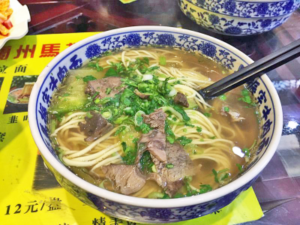This article belongs to the series “From the Middle East to the Middle Kingdom”—which is drawn from the leading ethnographic course helping Christians better understand China’s Hui Muslims.
Why do Hui and other predominantly Muslim minzu (民族, people groups) practice endogamy? If it is to prevent religious syncretism, it doesn’t appear to have worked.
When the Ming seized control from the Mongols, the new emperors sought to limit ethnic tension within their borders. Their tactic was forced integration through marriage law. They tried to breed foreigners out of existence. All semu (色目, lit. those with colored eyes; denoting foreigners with legal residency status in China) were forbidden from marrying their own kind. Through intermarriage with Han, Hui people’s physical features became more east Asian. The Hui population grew as their Han wives converted to Islam. The Hui became Mandarin speakers and lost their West Asian languages, saving only important religious vocabulary. They developed a distinct way of speaking called Huihua (回话), which is a variant of Mandarin containing Persian and Arabic loanwords, Yuan-era colloquialisms, and a few idioms from Buddhism and Daoism. Huihua persists to this day as a means of expressing distinctly Hui ideas as well as distinguishing Hui insiders from outsiders.
This was also the time when mosque-based education (经堂教育; Scripture Hall Education) began. The programs were intended to preserve Islamic faith among young Hui, but the teachings were very often of a kind we might now label “Islam with Chinese characteristics.” Islam adapted to the unique circumstances of Muslims in China. As Muslim scholars sought to preserve their religion amid the dominant Chinese culture, their Islam became clothed in Chinese forms and expressions. It was an early form of the Sinification of religion.
With the closure of maritime trade routes, some Hui in Eastern China lost all links to their religious heritage. Still, they maintained their Hui identity based on their West Asian ancestry. The Ding clan in Fujian Province is one such group. When Muslim missionaries accused Ding of being “fake Hui,” they objected that no one has the authority to say Hui must believe Islam.
Today, much of the cultural syncretism we see among Hui can be traced to their efforts to live peacefully during this era of forced integration. To satisfy their Chinese wives and neighbors, they reframed Islamic practices in terms of filial piety and Chinese wisdom. Chinese arguments that conflicted with Islam needed counterarguments. For example, in China, pigs were eaten, but cattle were kept alive as useful farm animals. Only “barbarians and Mongols” ate beef. The Hui adapted Traditional Chinese Medicine to explain their avoidance of pork. An ancient medical compendium states:
The pig is a creature that eats all things and sleeps wherever it wants, its eyes cannot see heaven, it staggers like a sick man. It is sexually promiscuous, its meat has cold properties, its appearance is repulsive, no other animal is as vile. If a person eats its meat, they might acquire its nature. 1
The “us versus them” mentality we observe among Hui today was birthed during the 300-year forced integration period. Hui lost the privileged positions they had held under the Mongols and became victims of discrimination. To this day, they still harbor self-pity mixed with ancestral pride.
Hui jargon became a symbol of resistance to the state’s efforts to wipe them out. Today, it still helps Hui differentiate between insiders and outsiders. Mosque-based education and religious conversion of Han wives helped to pass Islam to future generations, but both phenomena contributed to syncretism between Islam and traditional Chinese wisdom.
Endnotes
Image credit: Julie Ma.

Julie Ma
Julie Ma (pseudonym) is a graduate of Sydney Missionary and Bible College (SMBC) and a member of the Angelina Noble Centre for women in cross-cultural missions research. She left her home in Australia over a decade ago to serve Hui Chinese Muslims alongside her Chinese husband. After all these years overseas, …View Full Bio
Are you enjoying a cup of good coffee or fragrant tea while reading the latest ChinaSource post? Consider donating the cost of that “cuppa” to support our content so we can continue to serve you with the latest on Christianity in China.